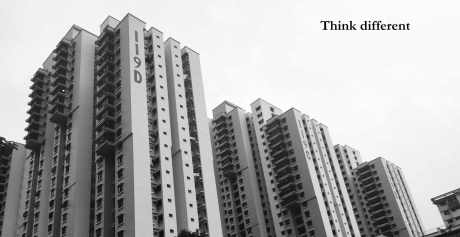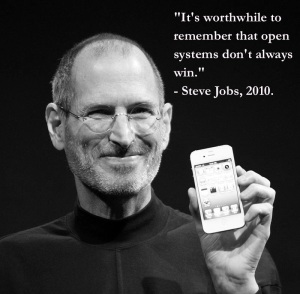A few years ago, Apple’s more affable co-founder Steve Wozniak (not the late, great other Steve) said something naughty about Singapore. Speaking in a BBC interview, he said a technology company like Apple that had ball-breaking innovation and creativity at its heart could never emerge in Singapore (WSJ picked up on it at the time). His words:
Look at structured societies like Singapore where bad behavior is not tolerated (and) you are extremely punished…Where are the creative people? Where are the great artists? Where are the great musicians? Where are the great writers?
For Singapore-watchers both on and off the island, there was nothing particularly unique about these off-the-cuff comments. Nasty, horrible people have been saying that Singapore is a gilded dystopia lacking in originality or character for decades. But there were some subtle ironies that went only partially noticed by participants in the debate. For starters, Apple’s original iPod was itself the subject of a legal dispute with a Singapore company, aptly-named Creative Technology, that claimed the iPhone progenitor was a ripoff of its own Zen portable media player (more detail on that case and its outcome here).
More glaring though is the fact that while Woz’s comments focused on the creative impotence of controlled societies, what was never examined was just how similar Apple is to Singapore, culturally and operationally. Both are outrageously successful as corporate entities (and not cheap). Everyday, they draw thousands of applications for people wanting to work there. They were both born out of bold and daring ambitions, created by relentless and ruthless visionaries and at certain points in their histories, almost evaporated into insignificance only to come back stronger than ever. Both run extremely successful international brands and offer beautifully and obsessively integrated operating systems that are dreams to use – they’re safe, shiny, reliable, clean and a lot prettier than most of their competitors.
I won’t comment on what Apple is like as a place to work as I’ve never worked there though there are volumes of commentary on that by Apple alumni in the ether. But observations about its operating system show that its success is as much about what Apple chooses to reject as much as the elegant design of the system itself. The iOS platform offers a broad market place for a big tent of industries. For third-party developers, the iOS platform is about scaling reach to end users and improving productivity. The iOS world creates an open and competitive market place of goods and services for all the world’s most cashed-up industry players and an affordable and accessible point of entry for smaller, indie players. It is, by-and-large, an open system, welcoming of diversity and a range of contributions. Yet at the same time its walls are high, its entry points are limited and tightly controlled and life within its borders is coupled with very binding and at times punitive conditions. Seldom are the voices of dissenters listened to, though there are notable exceptions.
Apple’s own quality control, high standards and sense of purity are what makes it a strong brand and a platform upon which third parties and end users choose to operate. Commentator Jon Evans, in a TechCrunch piece a few days ago, described the organisation and product philosophy as this:
…technology as a centrally controlled hegemony unsullied by tinkerers who want to go outside of their sandbox, a walled garden of an ecosystem that is only permitted to evolve when Cupertino initiates the evolution. Only Apple is allowed to think outside the box in which its users live…
Evans asked other questions about how much one should trust a “benevolent dictatorship” like Apple, given the enormous power and information it has over and on its users.
Anyone that has ever strayed into a debate about Apple operating system will know the feverish pitch that Apple’s fans defend the company and its products. The straight-up defence of Apple’s operating restrictions is that the product works and doesn’t give them any problems, unlike the unstable, unsafe, confusing and inefficient environments of more open systems like Android. At the heart of the debate is not just a geeky fetish for design and UX but an argument about the values of openness and transparency and whether any long-term good comes of them.
Woz may well ask whether Apple could rise up in a society like today’s Singapore, a controlled structure born of a bold visionary.
We may just as well ask whether a bold visionary like Steve Jobs could rise up through a company like today’s Apple.



עבודה במכירות בתאילנד
… עבודה באירופה – כל עוד לא הגיע לראש הסולם להרוויח משכורות של אלפי דולרים חודש עבודה בארה ב לא עגלות. לכך, ישנו גם עניין הניסיון שעבודה ממושכת במכירות תיתן לכם – לצאת עבודה בעגלות באוסטרליה. בכך… Little Red Apple: how walled gardens prosper | Sam…
LikeLike